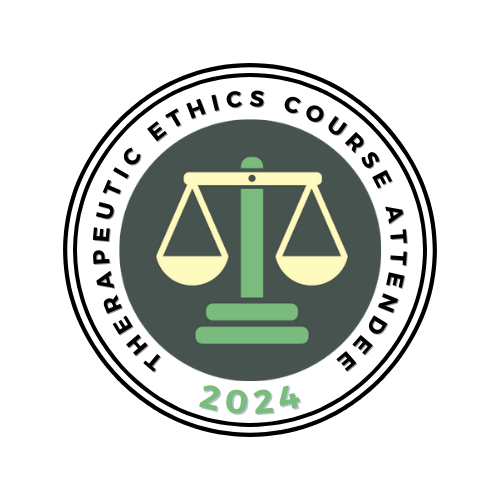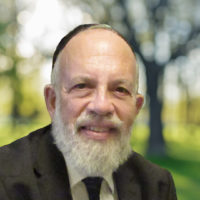Yehoshua Landau
Credentials
Finances
- 36 Keren Hayesod St., 5th floor
- Jerusalem
Yehoshua Landau
 Verified
Verified
Credentials
Mental Health Counselor
MSC
Finances
250-350 NIS
None
Sliding Scale
ABOUT THE THERAPIST
Finding the right therapist is an important step towards healthier, happier living. My approach is holistic, goal oriented, and future-focused. A tailor-made technique is developed for each client. Drawing on a number of therapeutic modalities, I frequently use mindfulness, psycho-dynamic, and cognitive-behavioral therapy. In family therapy I use Bowenian, structural, strategic, and Gottman techniques. I also serve as mentor for those in the shidduch dating process and engaged couples consult me for prenuptial counseling. Married couples resolve intimacy issues, reduce conflict, and gain better communication skills. In divorce arbitration, my legal and rabbinic training and experience inform my work. Recovery from childhood trauma or gender identification issues is a goal that I can help clients reach as well. I'm also trained and experienced to guide people who want to free themselves from substance abuse or other dependencies such as gambling, overspending, overeating, or addictions related to the internet. I use EMDR (Eye Movement Desensitization and Reprocessing) to help clients recover from Post-Traumatic Stress Disorder and overcome their anxiety or panic. As consultant to families who are caretakers of elderly parents, I've assisted with peaceful transitioning to supportive health care facilities. You are welcome to contact me for a confidential assessment of how I can help you clarify and finally reach your therapeutic goals.
QUALIFICATIONS
MSC
University of North Texas
2012
Degree
MSCEducation
University of North TexasYear of Graduation
2012Years in Practice
11
ADDITIONAL CREDENTIALS
EMDR - IS 2011
Gottman Institute Certification in Marital Therapy 2008
Certification in Mental Health and Family Studies, Neve Yerushalayim, 2007
Rabbinic Certification, 1999
DISTANCE COUNSELING
Telephone Counseling, Online Therapy
SPECIALTIES
Abuse
Addictions
Alcohol Abuse
Divorce / Custody
Family Issues
Gender Identity Concerns
Self-Esteem
Spiritual Concerns
Stress Management
CLIENT FOCUS
Population
Adults
Couples
Families
Men
Women
Geriatric
Languages Spoken
Hebrew
English
TREATMENT APPROACH
Cognitive Behavioral Therapy (CBT)Cognitive Behavioral Therapy (CBT) is a type of psychotherapy that focuses on how one's thoughts, feelings and behaviors are connected and can be changed. It is based on the idea that how we think (cognition) and how we feel (emotion) can influence how we behave. CBT helps people identify and challenge distorted thinking and replace it with more balanced thinking, leading to improved mood and behavior. ‘Homework’, usually containing practical writing exercises, is often completed by the client between sessions to reinforce the therapy. Examples of tools that practitioners often use are journaling, challenging beliefs, and mindfulness.
Dialectical Behavior Therapy (DBT)Dialectical Behavior Therapy (DBT) is a type of cognitive-behavioral therapy developed by Marsha Linehan to help people learn to better manage and cope with emotions and stress. It focuses on developing skills and strategies to help regulate emotions, improve relationships and communication, and reduce self-destructive behaviors. Through DBT, people learn to identify and modify unhealthy thoughts and behaviors, while also learning to accept and validate their own feelings. DBT teaches skills to help individuals become aware of and accept and regulate their emotions, tolerate distress, and improve interpersonal relationships.
Eye Movement Desensitization and Reprocessing Therapy (EMDR)Eye Movement Desensitization and Reprocessing (EMDR) is a psychotherapy treatment that was originally designed to alleviate the distress associated with traumatic memories. It uses a structured approach to address the past events that may be causing current distress, and uses bilateral stimulation, such as eye movements, to activate different neural networks in the brain in order to reduce symptoms of trauma. EMDR has been found to be effective for a wide range of mental health issues, including anxiety, depression, and PTSD.
Psychodynamic TherapyPsychodynamic therapy is a form of therapy that focuses on the unconscious mind and how it affects behavior. It works to help people understand and work through past experiences and feelings that may be causing difficulties in the present. This type of therapy encourages individuals to explore their emotions, relationships, and behaviors in order to gain insight into their current difficulties. It can help individuals better understand themselves and their motivations, and gain insight into how past events have impacted their current lives. People tend to develop defense mechanisms when faced with challenges in life. Defense mechanisms may keep painful feelings, memories, and experiences in the unconscious. A few common defense mechanisms include: denial, repression, and rationalization. Psychodynamic therapists encourage people to speak freely about their emotions, desires, and fears. Being open may help uncover vulnerable feelings that have been pushed out of conscious awareness. According to psychodynamic theory, behavior is influenced by unconscious thought. Once painful feelings are brought forth and processed, the defense mechanisms are no longer needed and a person in treatment can start changing unhelpful patterns when coping with life’s challenges.
Family therapy
SERVICES OFFERED
Individual Therapy


 Verified
Verified

